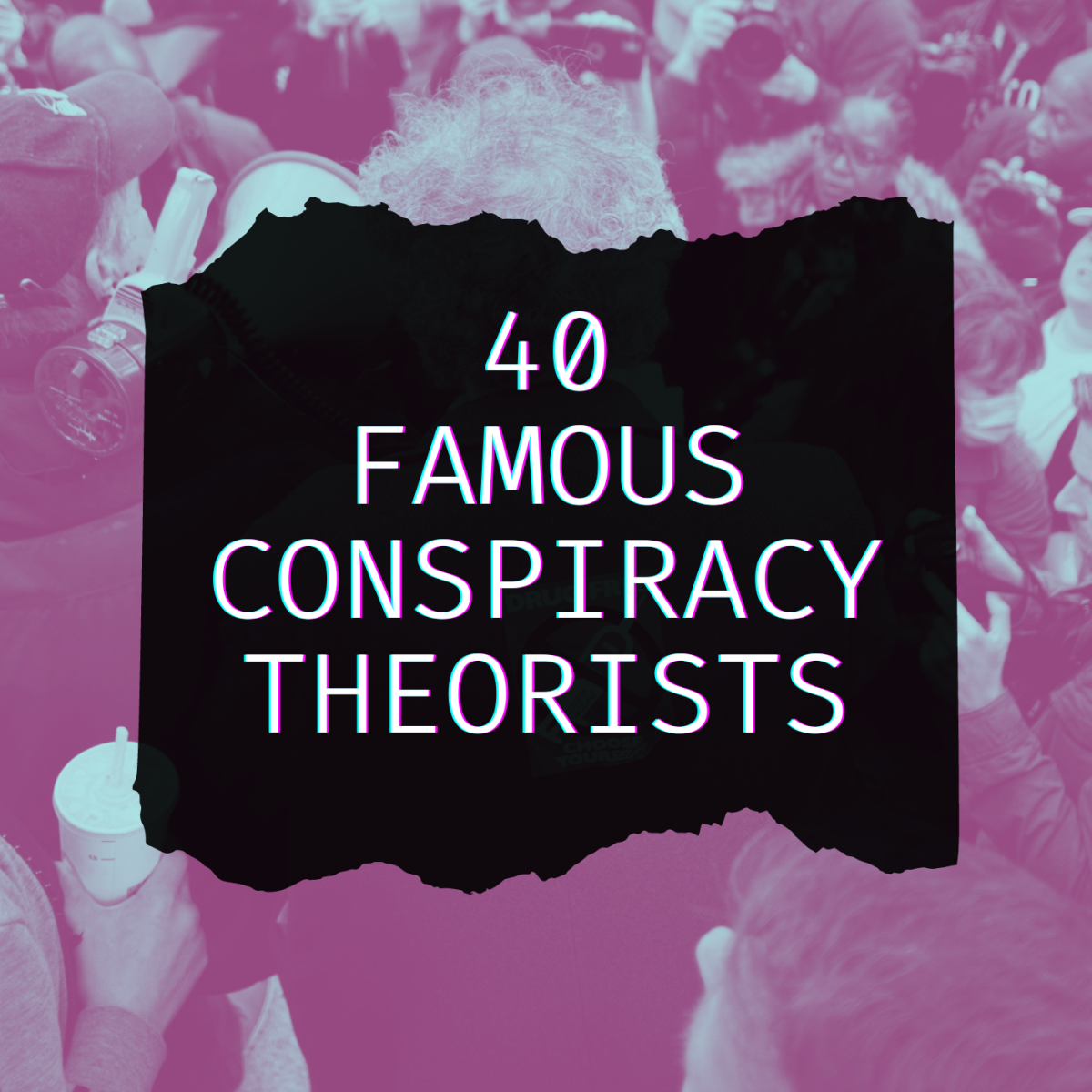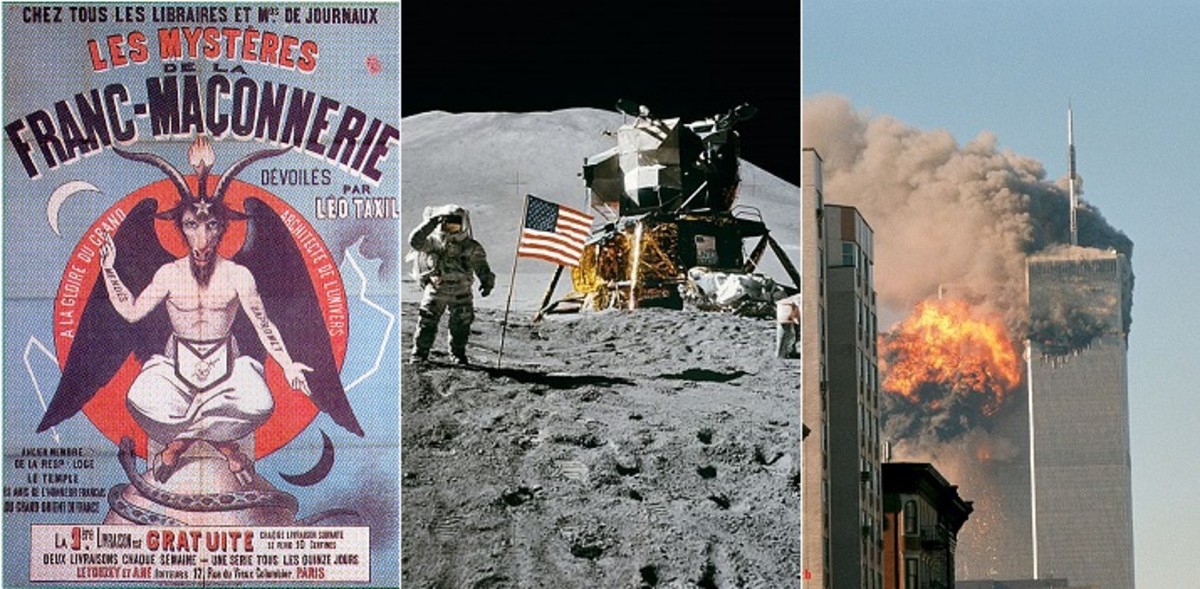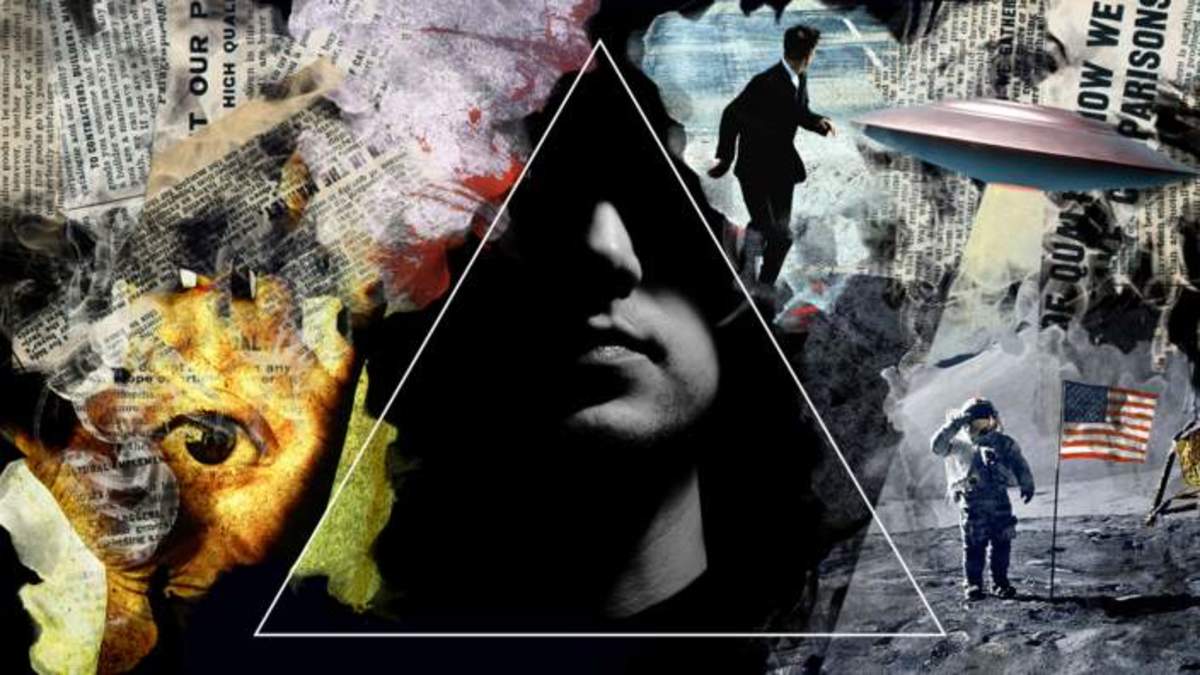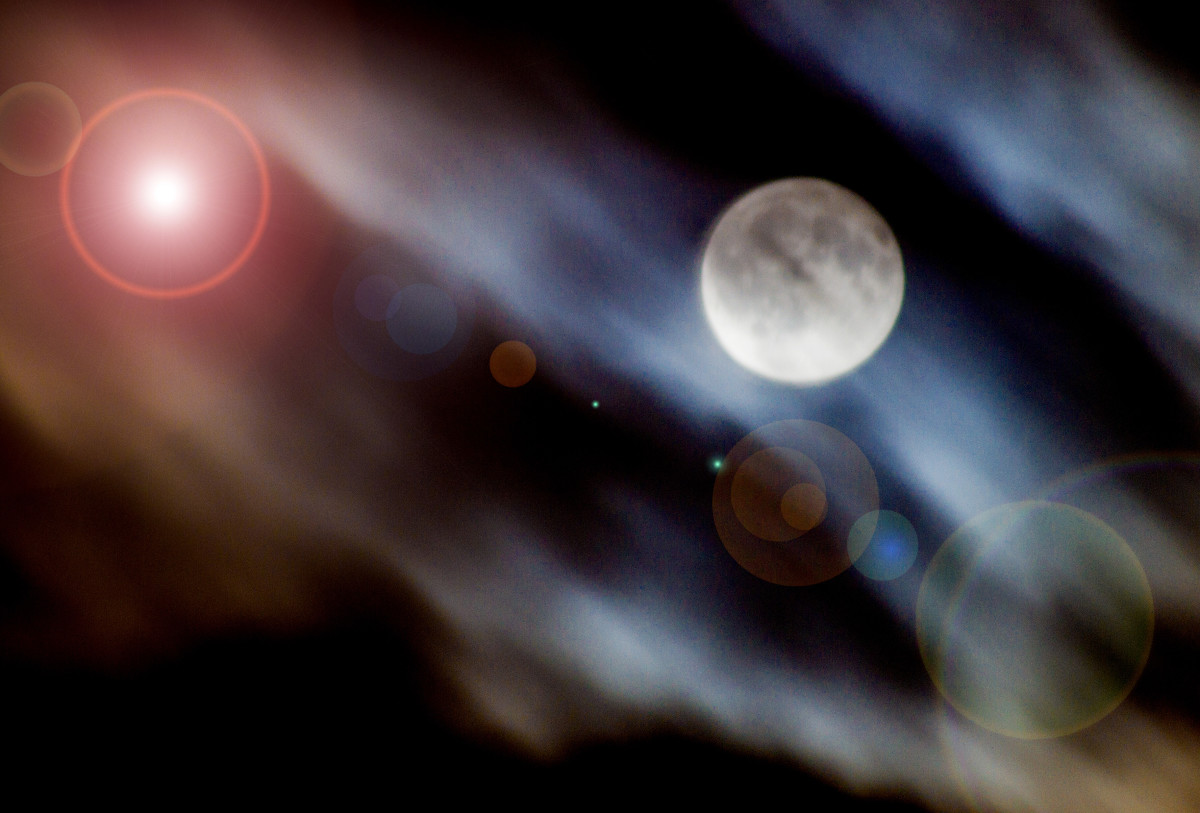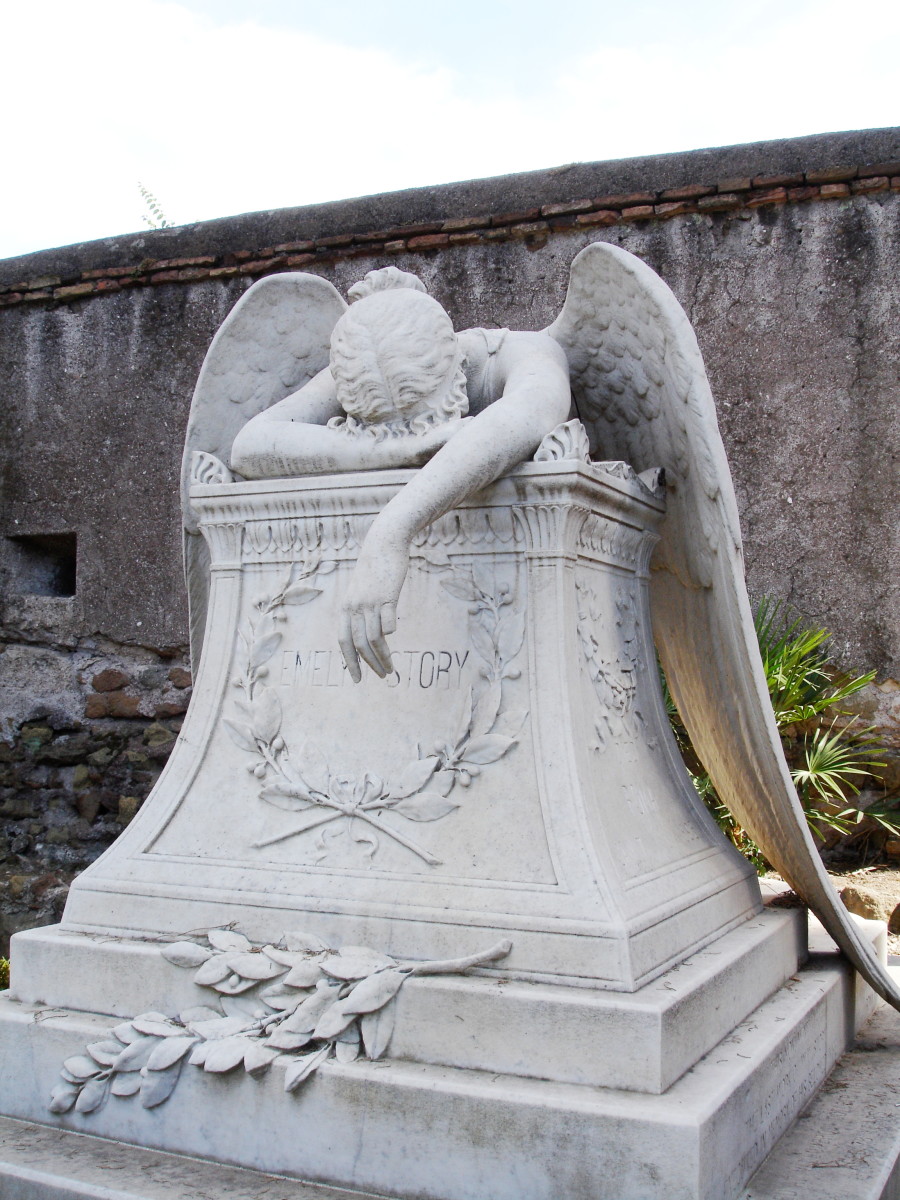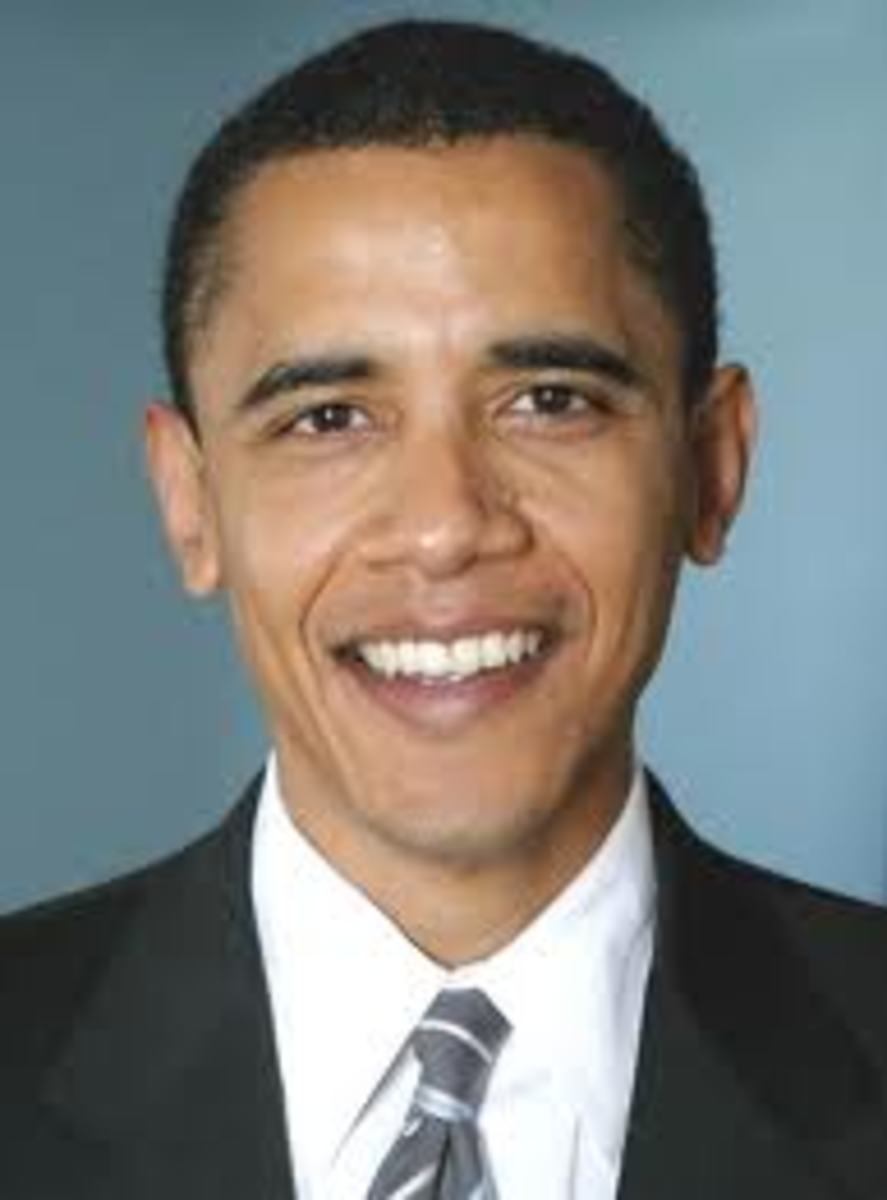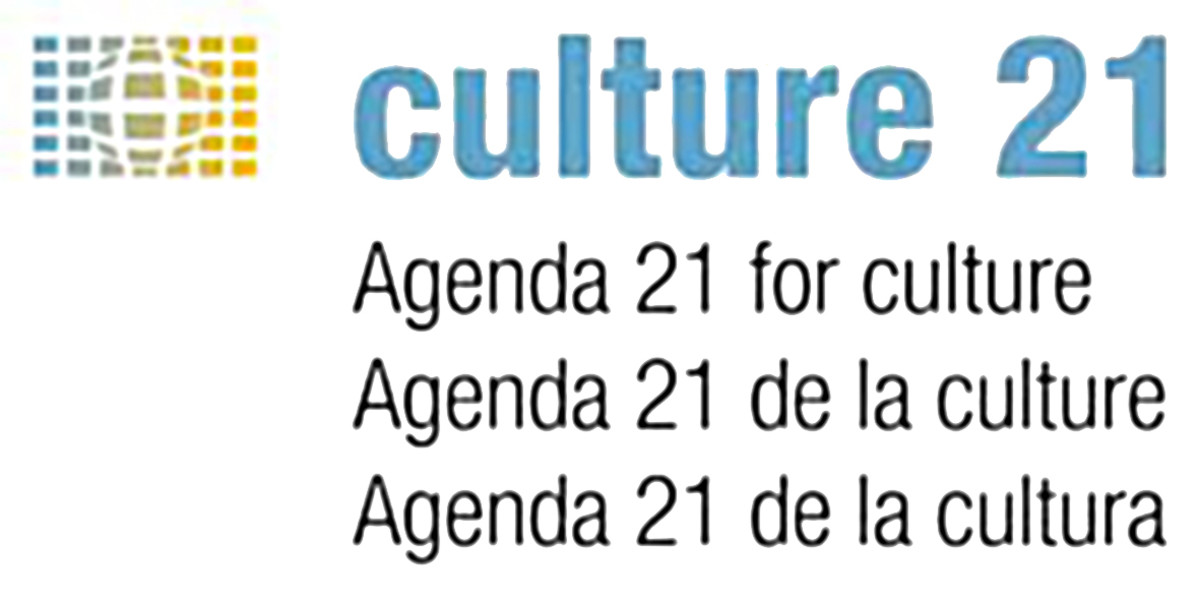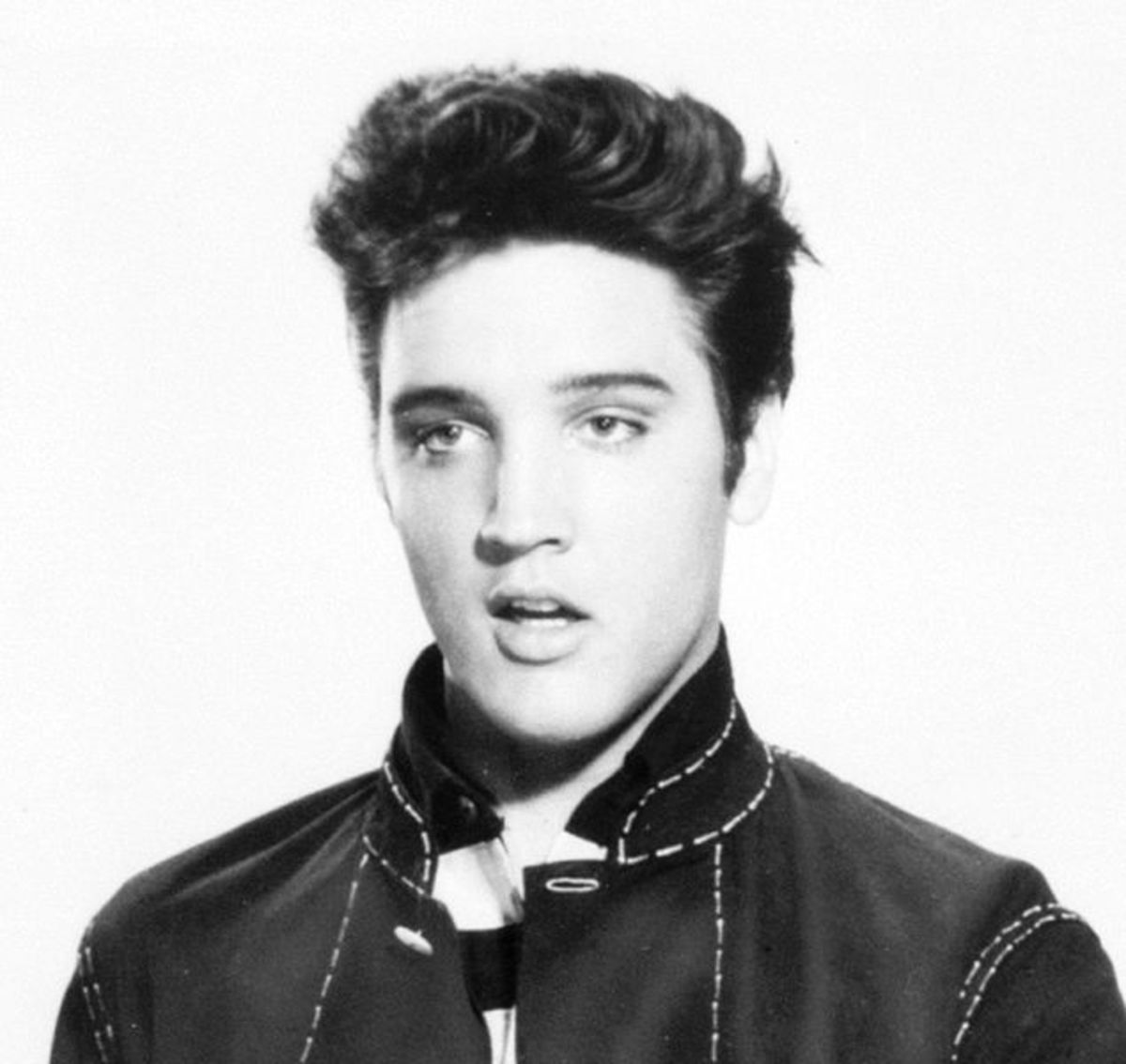Why Do People Believe in Conspiracy Theories?
Many of us don’t understand how someone can believe in some of the crazy ideas floating around out there. I hope to show not all conspiracy theories are the same. Some are complete fiction, but others have been proven true. Furthermore, I hope to shine a light on "conspiracy theorists" and show that not all who believe in controversial topics are crazy. Many are intelligent individuals who come to their conclusions based on research, evidence, and a level head. Mind you, even then not every conclusion reached is accurate. Shockingly, humans make mistakes. (Yes, that was sarcasm. I use it sometimes.) I'm not too worried about that as even "real scientists" can't agree on every topic and result. Just look at the T-Rex.
"Great, another conspiracy theorist." A man says, pushing his glasses up the bridge of his nose. His tailored suit lending a professional credibility to his admonishing look.
"Chill out, Glasses," another voice chimes in. His flower print shorts and Hawiian shirt perfectly express his relaxed, fun loving nature. "Just hear him out before you start the labeling."
"What are we going to talk about, Surfer Dude," Glasses asks. Boredom oozes from his voice as he continues, "chem-trails, the Illuminati, or 9/11?"
To understand why people believe in anything, we need to first understand a little about how they see the world. Sometimes it's easy to empathize. When someone thinks a lot like we do, or has similar experiences, it's easy to connect and understand their perspective. It's a little harder for people with major differences to find ways to connect. We see the differences and, consciously or not, use those differences to push other's away.
"Oh, so we're defending conspiracy theorists now?" Negative Nancy complains. "That never turns out well."
"Calm down, Nancy." The relaxed guy in a bathrobe says. "We're just sharing ideas and trying to understand someone else's perspective here."
"This will be so enlightening," Glasses oozes sarcastically. "I'm so happy to be inexorably tethered to you."
"Whoa. Harsh." Surfer Dude says.
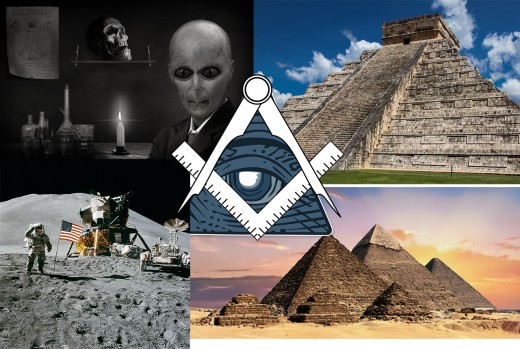
What is a Conspiracy Theory?
First let's cut through some hype. What is a conspiracy theory? Merriam-Webster Dictionary defines "conspiracy theory" as: “a theory that explains an event or set of circumstances as the result of a secret plot by usually powerful conspirators”. Pretty simple idea, but what do you think of when you hear the phrase?
"I've got this," Glasses adds helpfully. "Foil hats, UFOs, JFK, lizard people, you know; insane."
Like our friend here, you may think the same thing a lot of people think: Anything to do with a conspiracy theory is nuts.
"Because it is." Glasses adds matter-of-factly.
One of the great ironies is that most of us seem to believe there is a conspiracy somewhere. Politics are a great example. If you're part of a political party, the other party (or parties) are probably on the list of groups you think are part of a conspiracy. When a group of politicians sneaks a provision into a bill, that would be a conspiracy. When politicians work with corporations to keep the public in the dark, that would be a conspiracy. There are countless instances like these I hear about on a regular basis. We just don't associate these things with the stigma of a conspiracy theory. Instead we take for granted they happen. Recently, there's the big to-do with an election being hacked by Russians on one side; and on the other side, a conspiracy to hide and ignore serious crimes.
"It's not a theory if it's true." Glasses argues.
"It's still a theory until you prove it," A guy in a bathrobe supplies.
A conspiracy theory is no more than a theory used to explain the unexplained. Sometimes the theory truly is filled with nonsense. Other times, it’s an intelligent look at a subject that hasn't had enough attention by the public, with some proven correct. The stigma over conspiracy theories is used to discredit, whether deserved or not. It's easy to discredit conspiracy theories since a large number of them are rife with massive leaps of logic. However, there are a number of theories with a solid foundation based on facts. (We'll come back to that in a bit.)
So what is a conspiracy theory again?
"I got this one." Surfer Dude chimes in. "A theory explaining an event. Usually pointing out a potential secret plot by powerful people."
"Surfer Dude knows big words." Glasses points out helpfully.
"Just because I dropped out of high-school, look like a jock, and like riding waves doesn't mean I'm stupid, Dude."
"Apparently."
Moving on.
One more time. A conspiracy theory is a theory about a conspiracy. No more, no less. The stigma comes from other factors that seem commonly associated with specific theories, and a general disdain for information outside the norm. Furthermore, the term has been used to discredit and act as though anything outside “official channels’ was crazy. The term “Conspiracy Theory” itself was created by the CIA to discredit anyone questioning the Warren Report. The CIA released documents recently proving exactly that. Don’t take my word for it, take the CIA’s word (this link goes to a non profit site's upload of the document. Pages 2-5 explain the use of "Conspiracy Theory" to discredit. This is part of a massive upload of declassified information the CIA did.)

Bridging the Gap
Growing up, I had a pretty "normal" childhood (because what is normal really?). I was a good little Christian boy. My parents divorced when I was little. I went to public school. I was a nerd and not very popular, but had some friends. I was kind of boring. I didn't do drugs or alcohol, and I refrained from other — scandalous activities. Frankly, I was lazy and just didn't want to deal with the trouble I saw other people get into. Such a hassle.
I watched Saturday morning cartoons and PBS. I liked to watch the news because I wanted to know what was going on in the world. I knew there were a few conspiracy theories out there (the Kennedy Assassination and the Roswell incident) but only had passing interest and knowledge in them.
I was pretty sure ghosts were real in some form (after all, what are souls?). Also, many people I knew had witnessed strange lights in the sky that were definitely not planes. So aliens (whatever that meant) probably existed in some form. Despite these things, as far as I knew, conspiracy theorists were crazy people who wore tinfoil hats and believed in things like the moon landing hoax and the Illuminati. I saw a few things that made me wonder how much of what we were told in school was true, and how much was altered, but I took most of it to be true and left it at that. School was there to teach the facts. Even if a few of them were wrong. Most of them had to be right. After all, that's why the government regulated schools. Right?
I never questioned news stories I saw. The media was there to get to the truth. Laws were in place, and no media outlet wanted to be behind a bungled story, so every one of them tried to be as accurate as possible. Being a journalist was all about finding the true story. I both admired journalists and fantasized about being a journalist. How cool is it to bring the truth to the world?
It wasn't until I was in my mid twenties that I started to question things on a deeper level. I had heard too many stories from sources I trusted not to see that there was more beneath what I took for granted. I'd heard from people in the military, police, government officials, pilots, and many well educated people that important information was omitted from history. The history books told a different story than my parents' generation learned (and not because of updates, because of omission). Furthermore, current news wasn't accurate as often as I thought. These ideas stirred a need to investigate.
I stopped watching the TV news and listened to more sources. The Drudge Report was reporting a lot you didn't hear elsewhere at the time. Eventually, I got curious and started looking into the "crazy side" of the Internet. What I found were a long list of things I found insane, a shorter list of things that sounded surprisingly reasonable, and an even shorter list of proven conspiracies.
Fast forward to today and I've watched some of the things that were really high on my insane list migrate over to the proven list.
My point is; I'm not predisposed to believe in the crazy bits. I do my best to maintain skepticism and apply critical thought to everything. It gets tougher when you realize you no longer trust the commonly accepted "reliable sources" though. Sometimes money influences even the sources we think immune to such things.
Most importantly, I now value asking questions regardless of what I think I know.
If we want to bridge the gap and understand other people we need to stop dismissing and empathize a little.
Gulf of Tonkin

Who are “Conspiracy Theorists?"
The term "Conspiracy Theorist" is most often used to discredit someone and their ideas. It's easy to argue that this is because the conspiracy theorist in question is nuts. The problem is, this isn't always the case. Some people were branded a conspiracy theorist because they were "talking crazy" later to be proven correct.
In 1972, some people claimed the Republican party was spying on Democrats. They were, of course, branded "conspiracy theorists." As it turns out, these people were correct. You may know of the "Watergate" scandal. Then President Nixon was caught up in this plot and ultimately had to resign.
During the Vietnam war, the US citizens didn't want to join the war. Until an event involving a Vietnamese warship resulted in a battle on the sea. In response US citizens were convinced joining the war was the right thing to do. “To defend the free world.” A reporter saw some incongruities in the story and started to investigate. He was branded a "conspiracy theorist" and ridiculed. You guessed it, he was right. They "Bay of Tonkin" incident is now known to have been a fabrication to convince the American people to join the war.
Conspiracy theorists are sometimes people who’ve lost touch with reality for a bizarre narrative. Other times, they are people who find incongruities and ask questions, then get called crazy for it.
Writing a conspiracy theorist off as insane is a similar idea as classifying someone as an enemy. "They're a nut, just ignore what they say." This makes it easy to ignore any truth they have as though it’s a piece of their insanity pie.
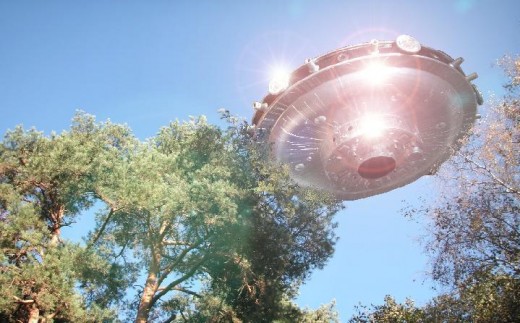
Why do people believe in conspiracy theories?
A deep part of who we are as a culture revolves around scandal. We love a good scandal. I'll admit, I myself enjoy hearing stories about corruption, wrong doings, or crazy things people have done. It's such a part of humanity, it's hard to tell whether this is a habit or some innate part of who we are. This "human nature" too often means we hear a good story and believe it (usually retelling it to others) before we look deeper and learn the truth. Some of us do get carried away too. It’s easy to go from realizing the truth is not as simple as what the media is feeding us, to buying into some of the deeper crazy. When your whole world view is shaken, finding stable ground isn’t easy. Especially when truth is stranger than fiction.
What about the theories that are correct?
It takes us thinking outside the box and deciding to dig despite the official narrative. If we're willing to do the work, we can wade through a lot of bogus information and find truth. Take Operation Paperclip for example. Once upon a time it was only a silly conspiracy theory. Now, many of us are aware that Nazi scientists were hired on by the US after the war. These scientists were pardoned by the US government so long as they accepted employment with the US. Think that’s a crazy conspiracy theory? The details are even listed on the CIA's website (Edit: the website was revamped and this now directs to a list of articles and transcripts). These details were not released to the public until long after the fact. Anyone who talked about it was branded a "conspiracy theorist." Now, those people have been vindicated. Even a small amount of research will find these details (like following that link to the CIA’s site).
The point is, just because something doesn't fit the commonly accepted narrative, doesn't mean it's wrong. Until we do some research, it's negligent to assume. Sometimes people believe in conspiracy theories because they’ve done their research.
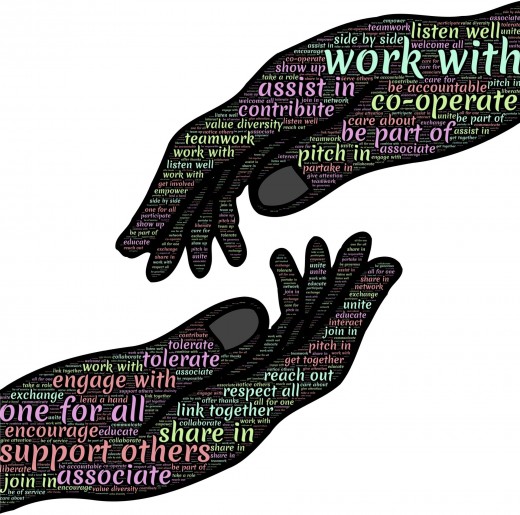
United We Stand Divided We Fall
I know, "how American" of me. I use the phrase because it embodies one of my core ideologies. Cooperation. When we work together, we make the greatest strides.
We humans tend to pick sides. We play teams. Each time we play teams, we not only pick a side, but we pick an enemy. This mindset to always pick an enemy is the greatest way we create division amongst ourselves. When we choose someone to be our enemy, we don't take that person seriously in anything. They can tell us the sky is blue, and we'll doubt their statement.
Why do I bring up our tendency to create enemies? Because until we realize it’s an issue, we can't see someone for who they are. Only who we expect them to be. That's why branding someone with a label can be so limiting and damaging to ourselves. The person is no more than the label to us. Labels are easy to dismiss: "Oh, he's a Democrat. Libtard." Or maybe; "he's a Republican. Religulous moron." Or more to the point; "conspiracy theorist nut." If we slap on a label, we can move on guilt free. When we find the commonality, we can better understand each other and often learn something.
What does this have to do with conspiracy theories? When we pick the side that laughs at "conspiracy theorists," it's difficult to take a conspiracy theorist seriously in any way. No matter how much truth there may be behind said claims.
This is also one of the reasons there is so much mud thrown on conspiracy theorists. If no one believes the crazy people on the sidelines, even the most damning evidence can just slide by. Yes, I realize this could be seen as one of those crazy statements, but if you look at the history, nearly every whistle-blower is called a conspiracy theorist. Julian Assange and Edward Snowden are two of the most prominent names associated with conspiracies lately. Whatever your opinion of their actions, no one denies the information they’ve shared is accurate. Instead, there’s other political backlash including claiming the information released needed to remain classified. Even so, anyone talking about what they’ve brought to light usually gets branded a “conspiracy theorist.” Again, a term coined by the CIA to discredit anyone questioning the official narrative.
So why do people believe conspiracy theories?
Sometimes because they are being naive.
Sometimes because of willful ignorance.
Sometimes because they’ve done enough digging to have good reason.
You’d be surprised how many silly theories I’ve looked into with the intent of debunking; only to find some truth and less crazy than I expected. That doesn’t mean the theory was right, just that I can understand how the theory came about. With far less ridiculous assumption than expected. People try to be reasonable.
Have you ever found a conspiracy to be true before it was acknowledged?
This content reflects the personal opinions of the author. It is accurate and true to the best of the author’s knowledge and should not be substituted for impartial fact or advice in legal, political, or personal matters.
© 2018 kwade tweeling

